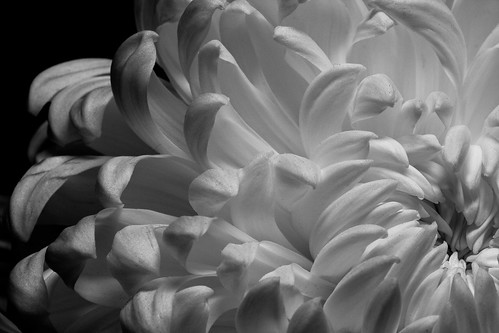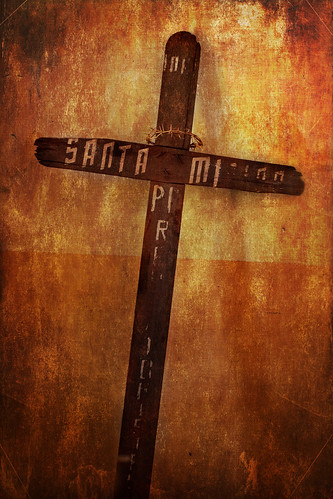Every now and then in our lives, we are fortunate enough to come across or become aware of someone who, whether they have actually committed themselves to this particular Buddhist way or not, is following the path of a Bodhisattva. While we don't often think of him in this way, Jesus clearly lived the life of a Bodhisattva, and in many ways (though not all ways), the lives and views of Jesus and the Buddha are connected. (In Living Buddha, Living Christ, Thich Nhat Hanh goes into detail about these connections.)
Today I would like to write about a Christian who embodied the principles of Bodhisattva, Pastor Dietrich Bonhoeffer, who is one of my real heroes. Bonhoeffer was born into a life of privilege in Germany in the early 20th century; his father was a prominent neurologist and psychiatrist, and his college-educated mother home-schooled her children to be strong both morally and intellectually. Although he was expected to follow in his father's footsteps by going into medicine, Bonhoeffer decided quite early on that he wanted to be a theologian, about which his family was not particularly pleased.
When he pursued postgraduate study in New York at the Union Theological Seminary, Bonhoeffer was introduced to the Abyssinian Baptist Church in Harlem, which had a profound influence on his thinking. In coming to know the black community, in his words he "turned from phraseology to reality," as he was confronted with issues of social justice and with the Church's seeming inability to right some of the wrongs he was seeing. This eventually led to his transformation from a theologian, mainly concerned with ideas, to a pastor, and to his ordination in 1931 at the age of 25.
The rise of Hitler and the Nazi party threw the German Evangelical Church into confusion; a significant segment of the church not only went along with Nazi ideology but supported its principles outright. Bonhoeffer, however, opposed it from the beginning, only two days after Hitler became Chancellor going on the radio and warning people against the new regime. He took position after position against Hitler and his policies (including Hitler's forced "elections" of church officials that installed people supportive of his policies), refusing, for example, to endorse a policy that prohibited non-Aryans from filling parish posts.
By 1935, Bonhoeffer was working actively in an underground seminary for pastors of what had been named the "Confessing Church," ministers who opposed the Nazi regime. When his physical seminary was closed by the Gestapo, Bonhoeffer continued his work, moving from town to town to supervise the pastors of the resistance. In 1938, the Gestapo banned Bonhoeffer from Berlin. After a brief sojourn in the United States, and against the advice of friends who told him to stay there, Bonhoeffer returned to Germany, convinced that "I must live through this difficult period in our national history with the people of Germany."
By 1941, Bonhoeffer was forbidden to speak in public or to publish his writing. Through one of his brothers-in-law, he was connected to the Resistance movement that was plotting against Hitler, and he began serving as a courier for the Resistance and helping Jews to escape to Switzerland.
In 1943, Bonhoeffer was arrested, along with his brother-in-law, and he continued his religious work in prison, turning down one opportunity to escape because he didn't want to bring Nazi wrath down on members of his family, many of whom were actively opposing Hitler. He continued his ministry for the next two years, during which he was moved to several prisons and to the Buchenwald and then Flossenbuerg concentration camps.
In April of 1945 he was condemned for his involvement in plots against Hitler, and Pastor Bonhoeffer was executed at the Flossenbuerg camp, just one month before the Nazis' surrender. Within the same month, Bonhoeffer's brother Klaus and two of his brothers-in-law were also executed. Bonhoeffer left a message, "This is the end -- for me, the beginning of life," and an observer said of his execution that he was "brave and composed . . . and entirely submissive to the will of God."
[Linkup to Photo Feature Friday and LEM Photo Challenge]
Pastor Bonhoeffer is memorialized as a 20th century martyr in Westminster Abbey, along with Martin Luther King and others. I think on this Good Friday it's important to remember those who have lived a life of compassion and good intentions, no matter what their religious orientation is. I'd like Pastor Bonhoeffer to be better known in the U.S. for his life and work.


 Posted by
Posted by











13 comments:
what great shots!! Happy Easter...
Lovely writing as well!
thanks so much for stopping by my blog! i like buddhism : )
cheryl
Such a beautiful poignant and important post. I think it's an excellent idea to remember those who serve others with compassion on Good Friday. Perhaps we could also remember the same people on Easter Sunday, and how their own suffering was transformed, and helped others.
I am very much in awe of Living Buddha, Living Christ- I read it a few years ago, and the parallels convinced me that the divine has the same message in countless forms, perhaps by it's own design, to provide opportunity to reach everyone in one way or another.
Happy Easter, Elise!
Thanks very much, everyone, and thanks Kristy for your comment. I do think the divine appears in many places and that religions have much the same message. There's a nice novel about Pastor Bonhoeffer's life, "Saints and Villains," by Denise Giardina.
Thank you for sharing this story, Elise...your photo is beautiful, too!
What an interesting post. Your photos are so beautiful! Thank you for sharing them at Photo Feature Friday :)
~Tricia
Hi there,
I found you through a comment you left on the Flower Photography blog. Your comment was very helpful to me as I didn't wasn't aware of selectively increasing/decreasing exposure. Now I just have to figure out how to do that.
Your photos and editing are beautiful. I'm adding your blog to my favorites.
By the way, we are neighbors, sort of. I'm up in the east bay.
Beautifully stated in both photos and words, Elise. :)
Thanks for your comments, everyone --
What a beautiful Story during this Holy Season.
The ways of the Bodhisattva in perfecting their Life and character are beneficial to anyone of any Faith and a Journey of self-enhancement that I believe would be pleasing to God.
I am a Christian, but my Paternal Grandfather was raised by a Chinese Family and had been raised with Buddhist Philosophy, so I am familiar with how enriching the tenents of the Faith can be for the Faithful of that form of Spirituality.
Easter Blessings from the AZ Desert... Dawn... The Bohemian
Oops should have proof-read before Posting... it was my Maternal Grandfather, my Mom's Dad... who was one of the most calm and reflective peoople I ever knew.
Dawn... The Bohemian
Very interesting post and very beautiful captures to go along with it. Happy Easter!
Thanks for the things you shared, Dawn, and thanks, Tara --
Post a Comment